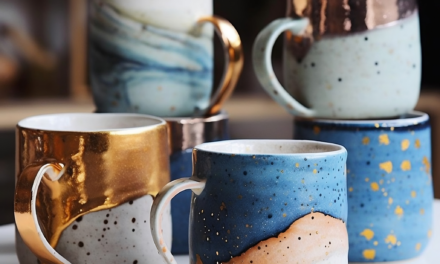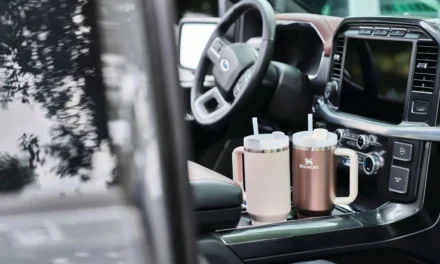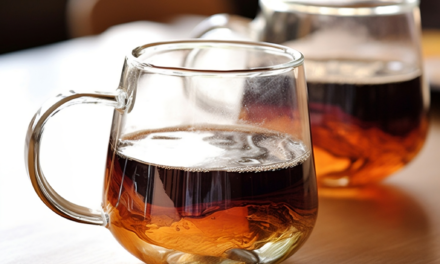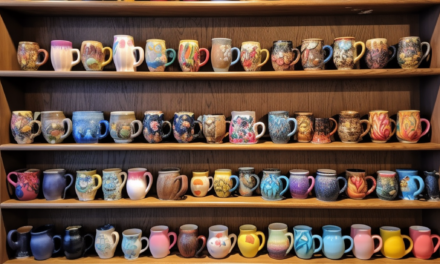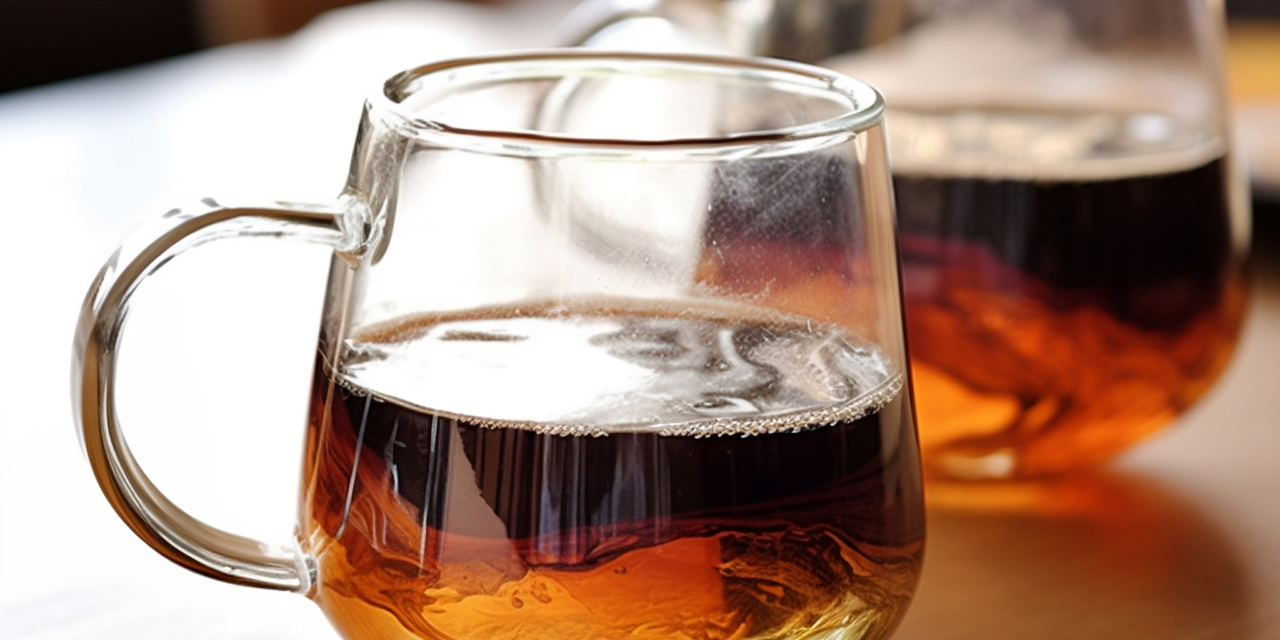As an Amazon Associate, we earn from qualifying purchases. We may also earn commissions if you purchase products from other retailers after clicking on a link from our site.
Coffee is an essential part of many people’s daily routine, whether it’s a morning pick-me-up or a midday boost.
A glass mug does not alter the taste of the coffee chemically. Glass is a non-reactive material, which means it does not chemically interact with the coffee and, therefore, does not affect its taste.
As coffee lovers, we all want to enjoy the perfect cup of coffee. But have you ever wondered if the mug you use to drink your coffee can affect the taste? In this blog post, we will explore the effect glass might have on coffee as well as some pros of glass coffee mugs.
Glass Mugs and Their Advantages
Glass mugs are a popular choice for coffee lovers for several reasons. One of the most significant advantages of using a glass mug is that it allows you to see the coffee’s color and texture. This visual aspect of the coffee can enhance your overall experience of drinking coffee. Additionally, glass mugs are less likely to retain the scent or flavor of previous drinks, ensuring that your coffee tastes fresh and flavorful.
Another benefit of glass mugs is that they are durable and long-lasting. Unlike ceramic mugs that can chip or crack over time, glass mugs are sturdy and can withstand frequent use. They are also easy to clean, as glass is non-porous and does not absorb flavors or odors.
My fiancée strongly believes that glass is the best material for coffee in terms of flavor. You can read more of her thoughts in Are Glass Coffee Mugs Good for Coffee?
Glass Mugs Don’t Affect Coffee Flavor
Now that we have established the benefits of using a glass mug, let’s dive into the main question: Does a glass mug alter the taste of coffee?
Glass mugs are relatively neutral in taste, meaning they do not add any flavor to the coffee. The lack of added flavor allows you to taste the coffee’s natural flavors, which is a desirable feature for many coffee aficionados.
Additionally, glass mugs are non-reactive, which means they do not interact chemically with the coffee. This quality ensures that the coffee’s taste is not altered by any chemical reaction between the mug and the coffee.
Some of the properties of glass that make it an excellent choice for coffee mugs include:
- Neutral taste: Glass is a non-porous material that does not react chemically with the coffee. As a result, it does not alter the coffee’s taste or aroma, providing a pure and unadulterated coffee-drinking experience.
- Durability: Glass is a relatively durable material that can withstand everyday wear and tear. Glass mugs are less likely to break or chip compared to ceramic or porcelain mugs, making them a practical choice for everyday use.
- Easy to clean: Glass is easy to clean and does not retain any odors or flavors, making it easy to switch between different types of coffee without any residual taste or aroma.
- Visual appeal: Glass mugs come in a variety of shapes and sizes, and their transparency allows you to enjoy the visual beauty of the coffee. Additionally, glass mugs can showcase latte art, adding an extra level of enjoyment to your coffee-drinking experience.
Temperature Affects Flavor
Some coffee experts argue that the type of glass used for the mug can affect the taste. For instance, if the glass mug is made from thin glass, it may not retain heat as effectively as a thicker glass mug. The lack of heat retention can affect the coffee’s taste by allowing it to cool down more quickly than desired.
The temperature of coffee can affect its flavor. Generally, coffee has a more complex and nuanced flavor profile when it is brewed and served at the right temperature. When coffee is too hot, the heat can mask some of the more delicate flavors and aromas, making the coffee taste bitter or burnt. On the other hand, if the coffee is too cold, it can taste flat and lack the desired depth and complexity.
As a study has shown, the optimal temperature for drinking coffee is between 49°C and 60°C (120°F and 140°F). At this temperature range, the coffee is hot enough to bring out its flavors and aromas but not too hot that it burns the tongue or masks the delicate notes of the coffee.
It’s important to note that different types of coffee have varying optimal drinking temperatures. For example, lighter roasts may taste better at a slightly cooler temperature, while darker roasts may be more enjoyable when served slightly hotter. Ultimately, the optimal drinking temperature for coffee is a matter of personal preference, and it’s best to experiment and find the temperature that works best for you.
Coffee experts recommend using a thicker glass mug or a double-walled glass mug that can retain the coffee’s heat for a longer time, resulting in a better-tasting coffee.
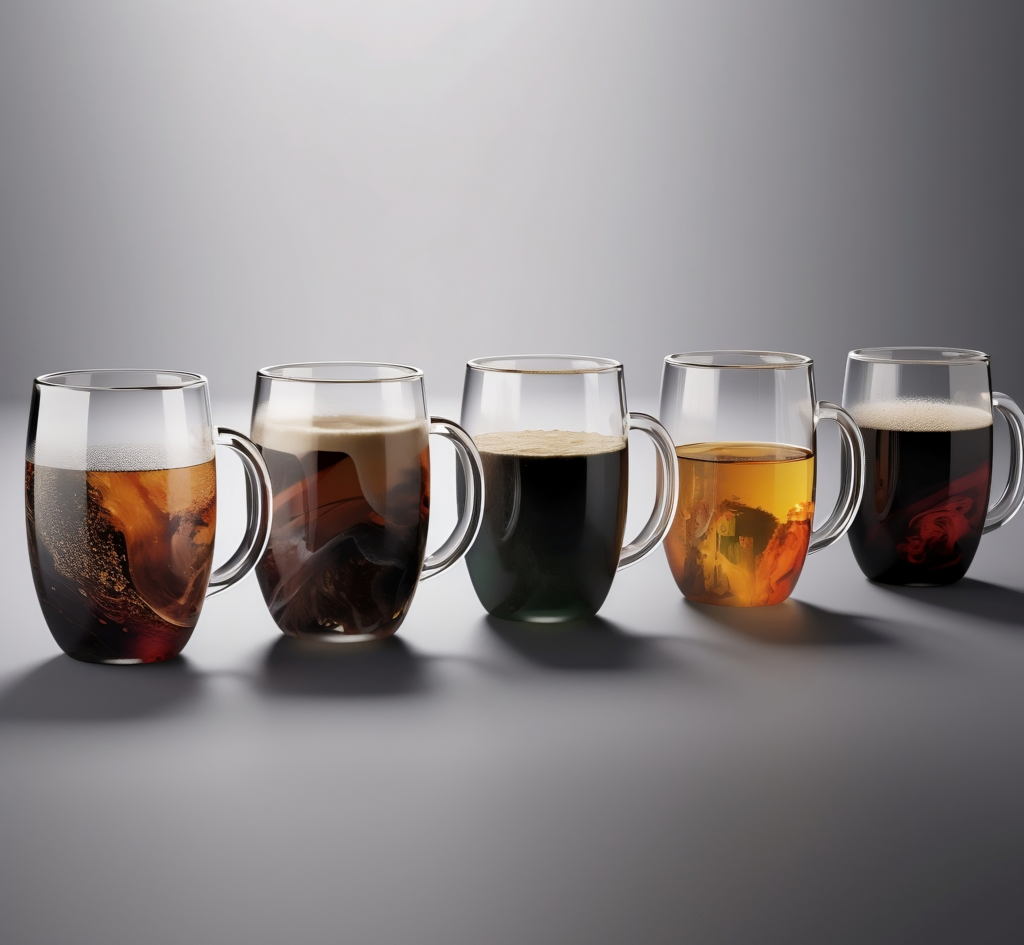
Size Matters
The shape and size of the glass mug can affect the taste of the coffee. A smaller glass mug can intensify the coffee’s flavor and aroma, while a larger glass mug can dilute the coffee’s flavor through scent.
The shape of the glass mug can also affect the coffee’s taste, as wider mugs can allow more air into the coffee, making it taste less concentrated.
You’d be surprised to learn how much air can affect the flavor of your coffee!
Don’t believe me? Just watch Coffee With Carl’s video where he aerates his coffee to see how it’s going to taste:
Does Coffee Taste Sweeter From Glass Coffee Mugs?
Chris Chacko, as cited in Allrecipes post, claims that coffee tastes sweeter from glass mugs. But is that really true? I wanted to challenge that, and here are my results.
There is no scientific evidence to suggest that coffee tastes sweeter from glass coffee mugs. The sweetness of coffee is largely determined by the type of beans used, the roast level, and the brewing method, among other factors.
However, some coffee lovers may perceive coffee to taste sweeter when served in a glass mug due to the visual aspect. Glass mugs allow you to see the coffee’s color and depth, which may enhance the overall sensory experience and lead to a perception of increased sweetness.
Additionally, the material and thickness of the glass mug can affect the coffee’s temperature, which can also impact the taste perception. If the coffee is served too hot, it can mask the subtle sweetness and other flavor notes, while a slightly cooler coffee may bring out the sweetness and other flavors.
Overall, while the material and thickness of the glass mug may affect the temperature and visual aspects of the coffee, they are unlikely to have a significant impact on the perceived sweetness of the coffee.
The sweetness of coffee is primarily determined by the coffee beans and brewing process.
My Honest Opinion on Glass Coffee Mugs
As a coffee lover, I have experimented with various types of mugs, including ceramic, plastic, and glass mugs. I have found that glass mugs are my go-to choice for several reasons. Firstly, I appreciate the visual aspect of the coffee and how the glass allows me to see the coffee’s color and texture.
Secondly, I like how easy it is to clean the glass mug and how it doesn’t retain any previous scents or flavors.
Regarding the taste of the coffee, I have found that using a thick glass mug that retains heat enhances the coffee’s flavor.
I have noticed that coffee tastes better when it is served at the right temperature, and using a thick glass mug ensures that the coffee stays hot for a more extended period.
Additionally, I have found that the size of the glass mug affects the coffee’s taste, and I tend to prefer smaller glass mugs that intensify the coffee’s flavor and aroma.
Conclusion
Glass mugs are a popular choice for coffee lovers due to their visual appeal, durability, and easy-to-clean nature. Glass mugs are relatively neutral in taste and are non-reactive, which means they do not alter the coffee’s taste chemically.
In the end, the decision of whether to use a glass mug or not ultimately comes down to personal preference.
Some coffee lovers prefer the visual aspect and chemical neutrality of the glass mug, while others may prefer ceramic or metal mugs for their heat retention properties. Regardless of your preference, it’s essential to choose a mug that you enjoy using, as this can enhance your overall coffee-drinking experience.
As for me, I will continue to use my trusty glass mug for my daily coffee fix, appreciating both its functionality and aesthetic appeal.


